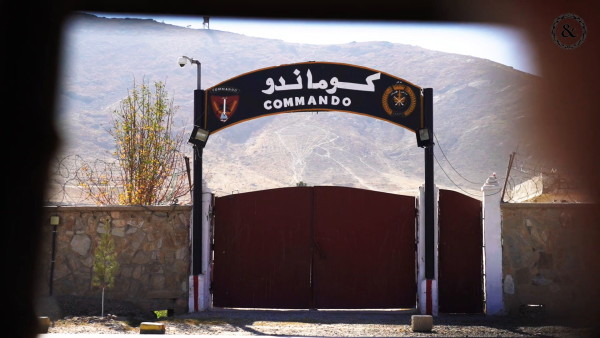

This essay was first published in 2016 and is being reposted for the 18th anniversary of the start of U.S. combat operations in Afghanistan.
I remember reading George C. Herring’s book America’s Longest War when I was studying history as an undergrad and couldn’t wrap my head around how the conflict in Vietnam could have gone on as long as it did. I naively assured myself that despite how horrific the toll of that war was, at least we had learned from our mistakes and would never let that happen again. I couldn’t have been more wrong.
Today, Oct. 7, marks the anniversary of combat operations in Afghanistan, which is now our longest war to date, and other than a select few who bear the brunt of this burden, most people won’t think twice about this somber and embarrassing anniversary.
Nothing could be more insulting to the troops currently serving.
I used to empathize with the public in previous years for not paying attention to the war in Afghanistan because there were so many other things going on: the war in Iraq, the worst recession since the Great Depression, threats of climate change, and myriad other things that dominate headlines. Those days are gone, however, and the empathy has run out. It’s now time to quantify what another year in combat means to the brave women and men still serving in Afghanistan and stop neglecting our New Greatest Generation of warfighters.
So what is another year in combat? Well, it depends on who you ask. If you ask the spouse of someone serving, it’s yet another increase in your chances of developing a mental-health problem — a topic largely ignored. If you are the child of someone serving, it’s celebrating another birthday or holiday worrying about your mom or dad overseas. And if you were one of the brave citizens who decided to make the military a career after the Sept. 11 attacks, you are one of the few people who have served on an unprecedented number of deployments, a toll that no other generation of warfighters has ever known.
This burden falls cruelly on a disproportionate number of citizens —- something we’ve never asked such small number of people to endure. And how do we repay these service members and their families? By neglecting them and the issues that affect them. We do live in a post-9/11 world, though, as the years pass, that seems to hold less weight. Some would argue that this is the price we pay for keeping our country safe. However, the literal “price” paid is something that needs to be addressed immediately.
Why are we spending $43 million dollars on a gas station or $335 million on an electric plant in Afghanistan that nobody is using when the brave women who return from Afghanistan don’t have the quality care they deserve? How did a war that was originally sold to us for a cost of “something under $50 billion” turn into a $6 trillion fiasco? Is this the best way to spend trillions of dollars, especially when just $30 billion could be used to solve the world’s food crisis? I’d like to have that discussion, but it’s nearly impossible when an apathetic attitude toward this war permeates our national dialogue. If it’s not about Trump and Clinton’s latest scandal, then no one is interested.

Marines kneel down beside the battlefield cross to pay their final respects to Sgt. Bradley Atwell during a memorial ceremony, Sept. 20, 2012(U.S. Marine Corps photo)
I could go on for ages about how disappointed I am in our country’s leaders for allowing this to happen, and still haven’t even discussed the mental health problems emerging from modern drone warfare, the moral injuries caused by having friends deploy without you, the objective risks of blowback from our policies in the region, or the psychological toll our actions in Afghanistan must take on the innocent civilians there, but am afraid that these complaints will fall on deaf ears.
We went into Afghanistan as a direct response for the attacks on 9/11, but considering far too many Americans have forgotten the event we said we never would, it’s all too likely that they will continue to forget about the war it started.
I, on the other hand, will continue to serve my fellow veterans when they return home and will do whatever I can to shed light on the individual acts of courage they continue to display for a country that has, for the most part, forgotten about them.